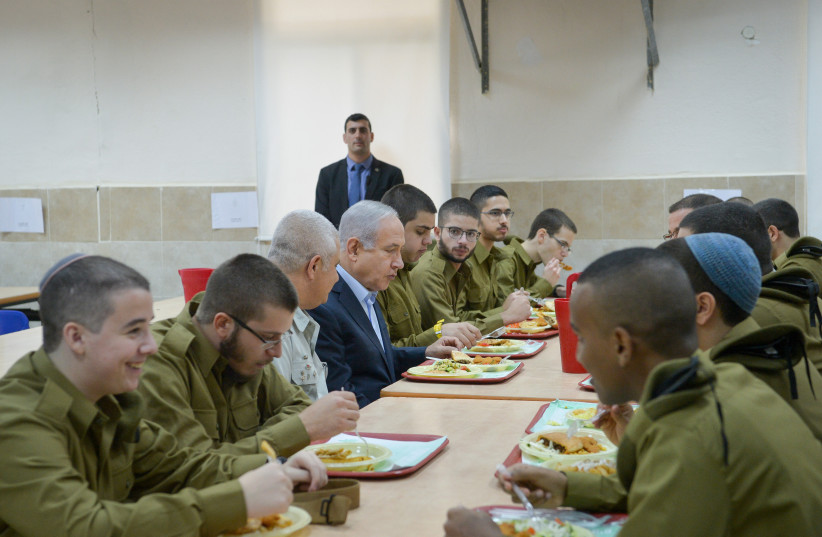Over 200 high schoolers who are supposed to be on the path to being drafted in the near future to the IDF have announced that they will refuse their call-up not only because of the judicial reform, but also because of “the occupation.”
The group, affiliated with the “bloc against the occupation,” will unleash a new unpredictable dynamic in the battle over the judicial overhaul and the IDF, both because it jumps into the controversial Israeli-Palestinian conflict and because it deals with the mandatory draft.
Already next week, the group expects to send a formal letter to the IDF and has already posted publicly about the move on its X (formerly Twitter) account and with various media outlets.
Until now, groups like “Brothers in Arms” who have led the protests against the judicial reform, have explicitly repudiated taking stances on foreign relations issues and have been laser-focused on the judicial overhaul issue.
Their strategy has been to serve as a “big tent” that can be a home for both traditional right- and left-wing voters (regarding foreign affairs), but all of whom support an independent judiciary and are concerned by the prospect of unlimited executive branch power.

In addition, the focus of the protests has been threats to quit service by seasoned reservists, many of whom either have no formal legal obligation to continue to serve, or who at least informally can quit at any time, given that less than 2% of the Israeli population does reserve duty.
Focusing the protests on the Israeli-Palestinian conflict
In contrast, this new campaign broadens the attack on the government to the Israeli-Palestinian conflict, which could supercharge enthusiasm among some protesters, but turn off center-right protesters who until now felt comfortable with the narrow focus on the judiciary.
On X, some of those involved in the campaign said that the government’s alleged dictatorial tendencies with its judicial reform were spawned long before and have gone on for years against the Palestinians.
Essentially, the group seemed to argue that if the government does not respect Palestinian human rights, it is less of a significant leap to disrespect civil rights of Jewish citizens as well, if they get in the way of certain sectoral goals and power.
Likewise, the new campaign could pose a messaging dilemma for the protest leaders since the high schoolers are mandated to serve by law, something all of the reservists have already done.
A representative for Brothers in Arms said they have no connection to the group, and will proceed with their own separate campaign which is dedicated to blocking the judicial overhaul.
For the IDF, the new group could pose a major new challenge by reducing enthusiasm for mandatory service, something which to date has not been a big problem, despite 10,000 reservists quitting or threatening to quit.
From the August draft numbers, the IDF presented statistics showing even some growth in interest in being drafted to certain combat units.
However, the IDF is concerned about the long-term impact of negative attitudes toward IDF service on future high schoolers. This is because such future high schoolers could spend a longer time getting mixed messages about IDF service than those graduating high school soon, many of whom were already hooked into the idea of IDF service before the judicial overhaul debate started.
It is also unclear how the IDF would handle more than 200 Israeli high school graduates all refusing IDF service at once from the population which is usually drafted.
In past years, many people who wanted to avoid IDF service out of objection to the “occupation” might have used quiet means, including getting a psychological exemption, to get out of military duty.
There were usually a very small number of draft refusers from the left who wanted to go public with their refusal, so placing them in jail for a short time period did not hugely impact the greater system and was not a logistical challenge.
In contrast, such a large potential group of public draft refusers all at once could shake the IDF’s image far more and prove logistically challenging if there was a desire to put them all in jail, even for a short period.
In the meantime, the IDF said that the pronouncements have all been informal, and it will not respond or formulate a strategy until each individual gives a concrete response to their draft summons.
There also seems to be hope within the IDF that the judicial reform issue may be more settled with some kind of compromise before the next big draft round a few months from now.
